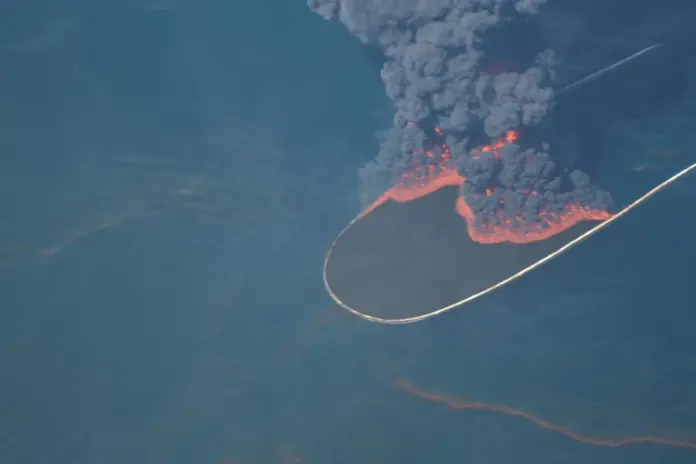One of the most catastrophic environmental disasters in history is BP, aka the Deepwater Horizon oil spill. On April 20 2010 in the Gulf of Mexico, the event was not only the cause of a tragic loss of life but also a great ecological catastrophe. Due to the 87 days that it took to release millions of barrels of crude oil into the ocean following the explosion of the Transocean-operated Deepwater Horizon offshore drilling rig leased by BP. The incident exposed how poorly drilled offshore still was and revealed the impact the incident had on marine ecosystems, coastal economies and regulatory policies.
The Disaster Unfolds
A high-pressure oil well drilled into the Macondo Prospect had been drilled on the night of April 20, 2010, that had a blowout preventer that failed to seal. Two days later the semi-submersible drilling rig went down and 11 crew members were killed in the resulting explosion. A long battle then ensued to seal the leaking well, and the oil kept on spewing into the Gulf. The event was declared a national emergency by the U.S. government, which made many failed attempts at stopping the leak including containment domes, junk shots, and relief wells.
Also read: Oxy Petroleum Plunge 20% in a Month: Buy Opportunity or Warning Sign? Expert Analysis
Environmental Impact
It was on such a scale of environmental damage. According to them, 4.9 million barrels of oil spewed out into the Gulf of Mexico and covered more than 57,000 square miles of ocean. Oil contamination and wrecking of the ecosystem of marine life made the marine life suffer badly. Dolphins, sea turtles, fish and bird populations were drastically declined. Coral and wetlands along the Gulf Coast smothered the reefs and degraded natural storm barriers that protect biodiversity.
Economic and Human Costs
The damage to the economy of Gulf Coast communities was also severe. Sharply reducing the fishing and tourism industries was critical to local economies. Fisheries were closed, commercial catches declined, and coastal tourism felt the hit from a polluted and unsafe region. The jobs they support are in the thousands and small businesses were affected in such a major way financially. BP put aside more than $60 billion to pay for cleanup, claims and penalties, but many said no amount of money could fix what was done.
Legal and Political Fallout
So too the Deepwater Horizon disaster stirred up a torrent of criticism aimed at BP, Transocean and Halliburton (the last responsible for cementing the well). The investigations revealed a culture of cost-cutting and negligence as the no. of safety warnings received were ignored before the blowout. In 2015, BP agreed to pay an $18.7 billion historic settlement to the U.S. government and five states. It also led to more regulation, with the deregulation of the Minerals Management Service, a reorganization into separate agencies and more strict drilling standards offshore.
Also read: 1987 Stock Market Crash Full Story: What Led To Black Monday In 1987?
Lessons Learned
The one important lesson that comes out of the Deepwater Horizon spill is that high-risk businesses must have strong safety protocols and independent oversight. The disaster demonstrated how corporate decisions based on profit can endanger lives and ecosystems. Aside from those, it also stressed the necessity of having definitive emergency responses and technology in advance before drilling. Since then, the oil industry has made some progress in making safety systems safer, but critics say more must be done to stop something similar.
Conclusion
To this day the Deepwater Horizon disaster is a sobering example of what can happen when accidents occur in critical environments caused by industrial interests. It leaves a legacy of environmental loss that came with corporate accountability, but also a turn toward better regulation. Although the Gulf appears to be in recovery, the promises of 2010 remain fuel for current environmental policy and offshore drilling practices. In the absolute depths of tragedy and the complete antithesis of a catalyst for change, there remains an argument about the vast responsibility we owe to nature when we tap from her resources.








